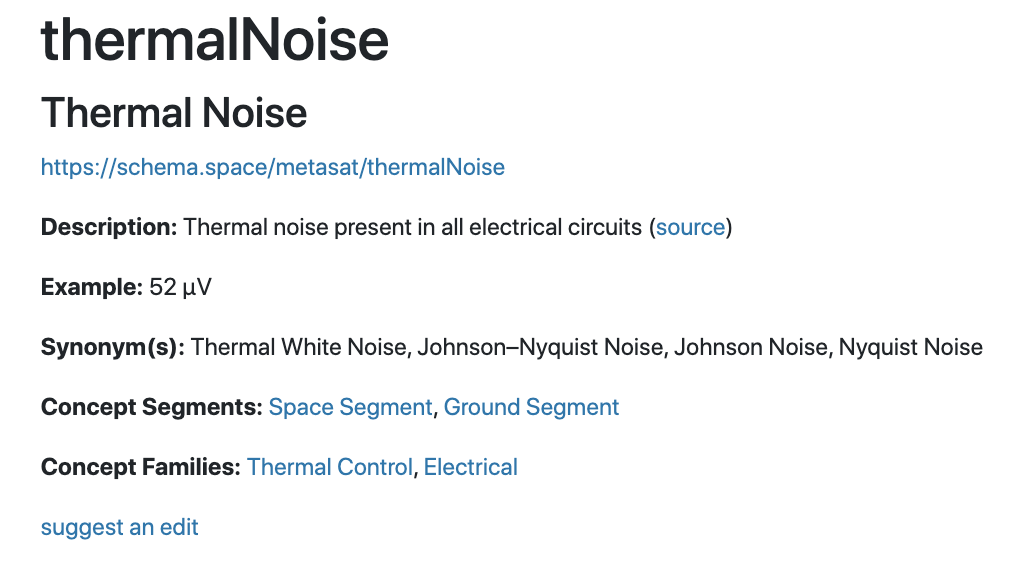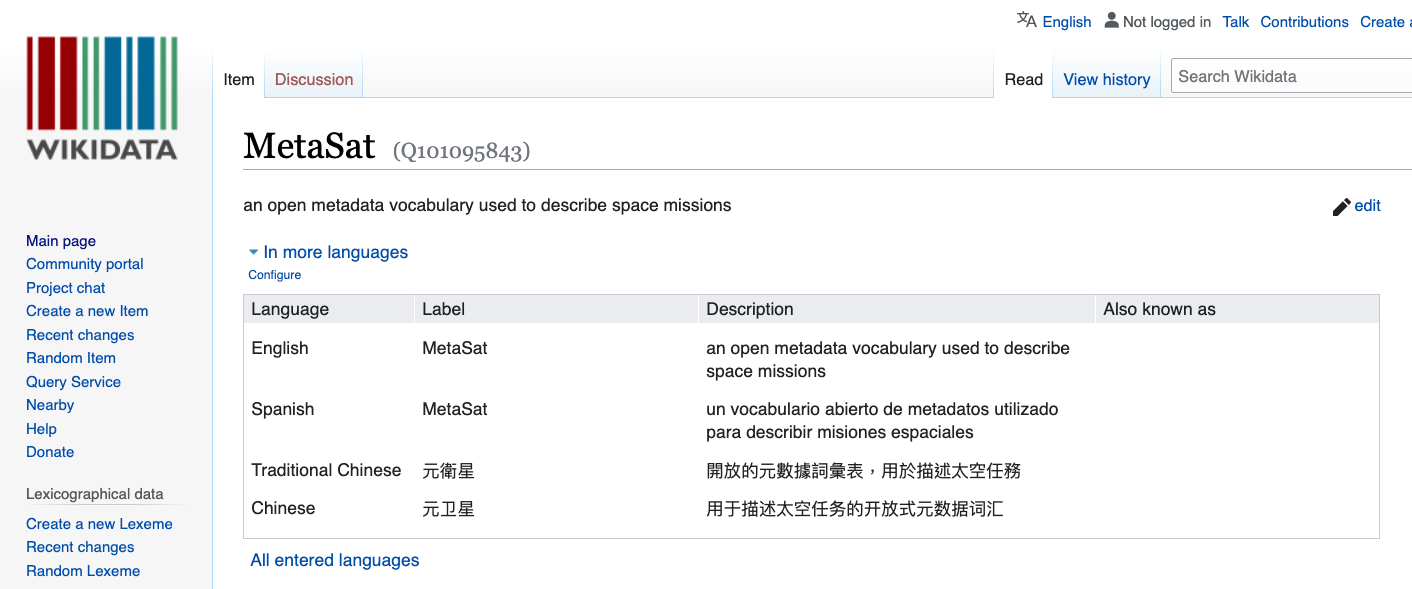Daina Bouquin
Harvard-Smithsonian Center for Astrophysics
MetaSat: An Open Metadata Toolkit for SmallSat Missions
a metadata toolkit for small satellites

Metadata
Mechanisms for modeling relationships between the information gathered from contextual sources.

Humphrey, S.D. Multiple Exposures of the Moon: Nine Exposures, daguerreotype, 1849.
Earliest image of the moon.
Was the only image of the moon.
Was a technological innovation that started a scientific revolution.
Now it's art.

Galileo's notes.
Was chicken scratch.
Now the birth of observational astronomy and the origin of scientific method.
Galilei, G. (1610). Osservazioni e calcoli relativi ai Pianeti Medicei.
Meaning is collective agreement about a specific thing at a specific time.
Meaning is not static.
Metadata needs to change over time
as new context is added.

Meaning needs to be
machine actionable
Human-readable metadata is limited
Meaning needs to be
machine actionable
Human-readable metadata is limited




MetaSat is a toolkit to help smallsat teams make their metadata more useful
MetaSat has three primary components:
-
MetaSat Vocabulary
-
MetaSat Example Files (JSON-LD)
-
MetaSat Crosswalks
MetaSat Vocabulary
- Unique concepts that describe spacecraft, missions operations, ground stations, and more.
-
Each concept in the MetaSat Vocabulary has a unique, permanent URI
-
URIs are machine-actionable and support:
- Search Engine Optimization (SEO)
- Federated search across platforms via APIs
- Since each concept has it's own URI, the vocabulary can be used for linked data applications and schemas that use any format of the RDF data model
-
URIs are machine-actionable and support:

MetaSat Vocabulary
- MetaSat's vocabulary is not hierarchical
- MetaSat's vocabulary is flat, but we have grouped concepts into two types of categories that we hope are useful— these gropings should be treated as recommendations
-
Concept Segments - collections that are related to a specific phase of a space mission
- e.g., Space Segment; Ground Segment
-
Concept Families - collections that are conceptually related
- e.g., Communications; Propulsion; Thermal Control
-
Concept Segments - collections that are related to a specific phase of a space mission

MetaSat Example Files (JSON-LD)
-
Example implementations of the MetaSat vocabulary.
-
Our examples are written in JSON-LD
-
JSON-LD is a highly flexible form of RDF that is built to be easily human-writable and machine-actionable.
-
-
The examples files combine our vocabulary with structure, and give recommendations for how the concepts relate to each other.

Simple example of a few subsystems from the PICARD mission
MetaSat Crosswalks
-
A crosswalk is a table of equivalencies for converting metadata from one vocabulary into another.
-
Our crosswalks, in combination with our decision to develop JSON-LD examples, will allow MetaSat users to combine different vocabularies into a single document, or convert documents into other RDF syntaxes without losing any information.

Thermal Noise

Supporters and Early Adoptors
-
Libre Space Foundation— dedicated to supporting open source space technologies; creators of SatNOGS
-
SatNOGS was first to implement MetaSat on their APIs
-
-
PMPedia— collaboratively developed by the University of Colorado Boulder Laboratory for Atmospheric Space Physics (LASP) and The Aerospace Corporation.
-
SSRI Knowledge Base— collaboratively developed by Sedaro Technologies and NASA’s Small Spacecraft Systems Virtual Institute with participation from civil, DoD, and commercial space systems providers.
-
The CEOS Database— funded by ESA to provide information on satellites based on an annual survey of all 34 CEOS member agencies.
Context and lessons learned
are too easily lost.
Our goal is develop MetaSat
to support your work.
Your feedback and input is essential.
MetaSat: An Open Metadata Toolkit for SmallSat Missions
By Daina Bouquin
MetaSat: An Open Metadata Toolkit for SmallSat Missions
Daina Bouquin, Daniel Chivvis, Allie Williams, Frey, Katie, Pierros Papadeas, Fredy Damkalis, Vasilis Tsiligiannis. Presented to the 2021 CubeSat Developers Workshop, April 27-29, 2021.
- 1,254




